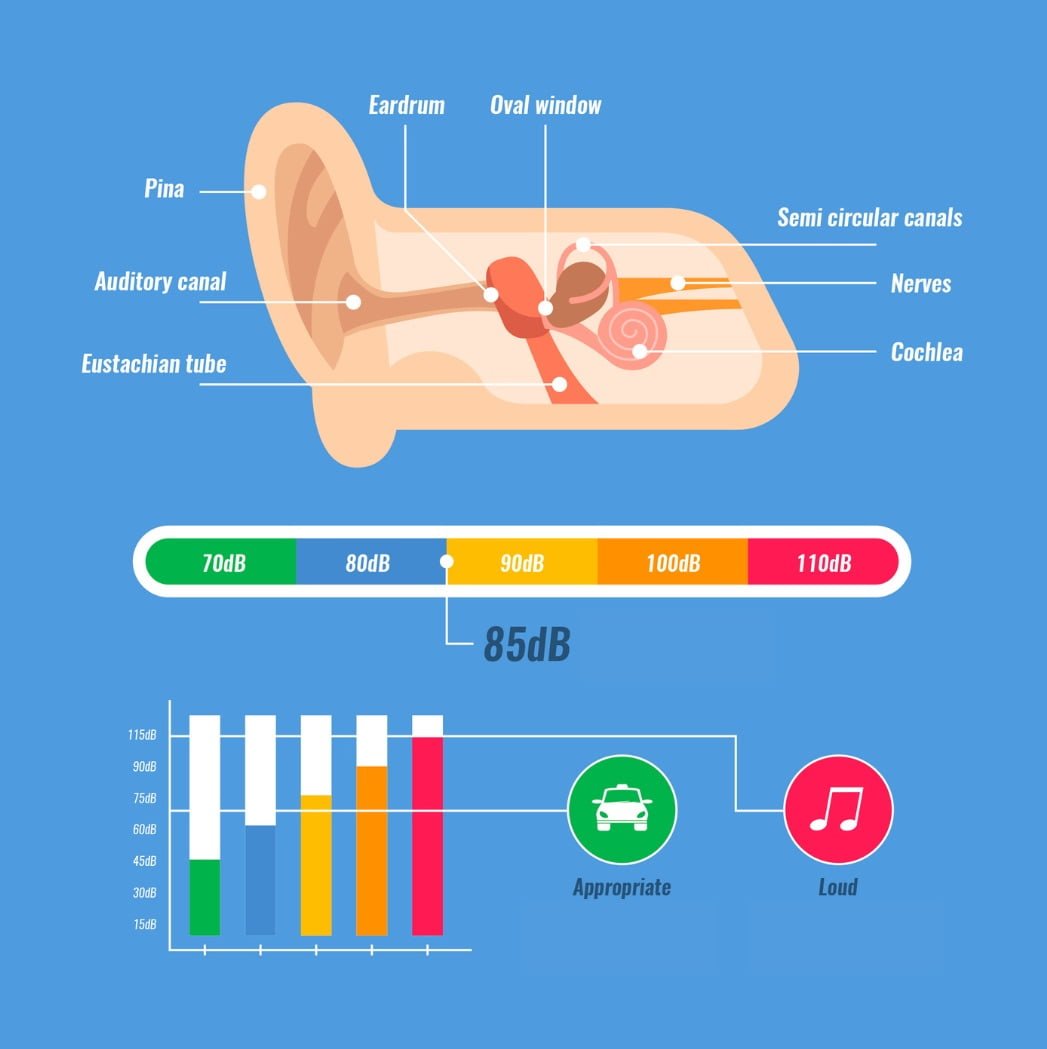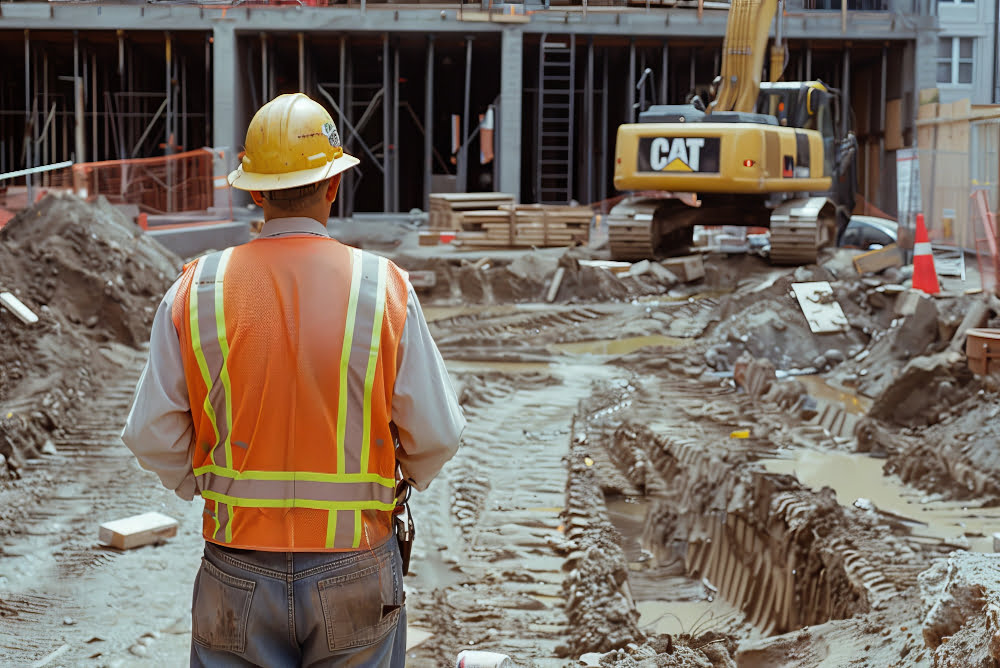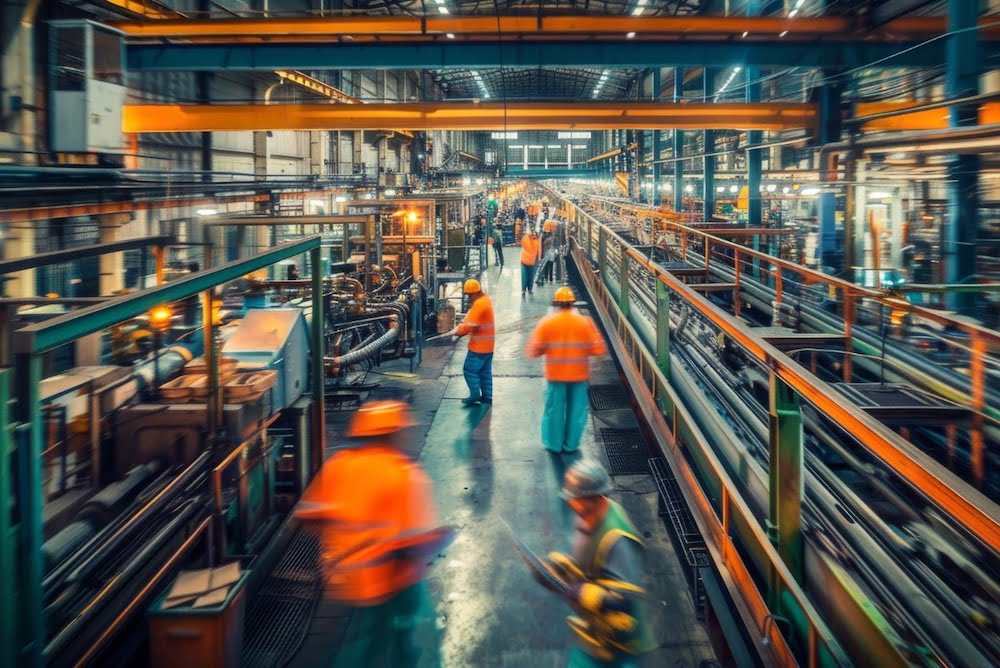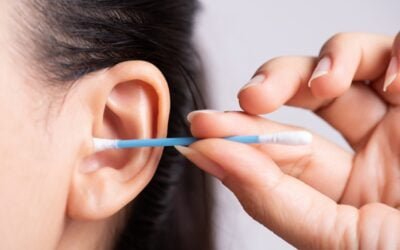Working in noisy environments is a significant contributory factor when it comes to hearing loss. It impacts millions of people across the world every year. If you work in a particularly noisy place you could be at risk of being affected by noise induced hearing loss (NIHL). The good news is there are steps you can take to protect your precious hearing. In the majority of cases, workplace related hearing damage is entirely preventable.

In this blog post we want to shine a light on workplace noise awareness. We will give you some practical tips on how you can and should take particular care of your hearing if loud noise is a part of where you work. Loud sustained or sudden noise exposure can cause permanent damage to your hearing and this can impact negatively on your overall enjoyment and quality of life.
How Does Noise-Induced Hearing Loss (NIHL) Happen?
Noise-induced hearing loss happens when the extremely tiny delicate hair cells within the cochlea (in your inner ear) are damaged by exposure to excessively loud sounds. This can be as a result of continuous noise exposure over a long period of time or the result of exposure to a single, extremely loud noise event like a bang or an explosion. The risk of permanent hearing damage will be determined by the frequency and magnitude of the sound level.
Common Workplace Environments Associated With Noise Exposure
The following are some examples of the typical workplace environments where your hearing can be exposed to damaging levels of noise:

Factories and Workshops
Most factories or workshops involved in product manufacturing. processing or packaging use machines at scale. These types of machines typically generate a lot of noise. When you get a lot of machines all located in the same area, all working away at the same time, the combined noise effect can become substantial, possibly far exceeding recommended safe noise levels. When people work in an environment with this type of sustained noise level every day, they can become, without even realising it, conditioned to the noise and unaware of possible damage being done to their hearing.
Construction Sites
Construction workers are among the highest risk categories when it comes to possible workplace related hearing damage. Heavy plant machinery such as diggers, tipper trucks etc. are exceptionally noisy and are in constant use on construction sites. In addition to these you can have other heavy equipment further contributing to the constant barrage of sounds such as cement mixers, saws and drills.

Transport Sector
Employee noise pollution exposure is very prevalent in the transportation sector. Workers such as truck, bus and train drivers are all at risk when it comes to workplace hearing loss as are those working in airports who have to work on the ground in close proximity with incoming and outgoing planes.
Entertainment Venues
Many people who work in the entertainment industry can be especially vulnerable to constant loud noise exposure. The type of people at risk may include those working in fairgrounds, concert halls, outdoor music events, cinemas and nightclubs.

Services Industry
Workers potentially exposed to continual workplace noise in the services industry include people who work in busy bars, hotel kitchens and restaurants.

Signs Of Hearing Loss
Recognising the signs of hearing loss at the earliest possible stage is so important. You could, for example, find yourself struggling to hear conversations, experience constant ringing sounds in your ears or having to turn up the radio or television. These are possible signs that you really should heed. Ignore these warning signs and you could end up with more severe and possibly even irreversible hearing impairment.
Ways To Protect Your Hearing At Work
The good news is, as mentioned at the beginning of this blog post, there are effective ways to protect your hearing at work, limit the risk of noise-induced hearing loss and safeguard your ability to hear well into the future. Here are some suggestions as to how to protect your hearing at work:
Wear Hearing Protection Equipment
It’s always advisable to wear appropriate hearing protective equipment if you are exposed to higher volumes of noise where you work. Earplugs and earmuffs are the most commonly used type of personal protective equipment (PPE) for hearing protection. These types of devices can greatly reduce the amount of harmful noise from reaching your inner ear, providing an effective safeguard for your hearing.
When choosing your earplugs or earmuffs, take into consideration the Noise Reduction Rating (NRR) of the device. The higher the NRR, the better and more effective it will be at reducing your exposure to noise. Also, it’s important to make sure you get the best fit when choosing earplugs and earmuffs. In a nutshell, the better the fit, the better the protection. The highest NRR available for earplugs is a rating of 33 whilst the highest available NRR for earmuffs is 31. It is possible to combine earplugs with earmuffs in which case a NRR protection rating of 36 is achievable. Generally speaking, the higher costing earplugs and earmuffs will have a higher NRR.So, it’s not always wise to go for the cheapest device!
Schedule Regular Hearing Tests
If you are exposed to a lot of noise where you work, regular hearing tests (every 6 months or so) can help monitor your hearing health over time. Some employers may offer free or subsidised hearing tests as part of their health and safety practices. Detecting early signs of hearing loss will enable your audiologist to help you to prevent any further damage.
Take Occasional Breaks
Try to take occasional breaks from the noisy working area where possible. Retreat to a quieter place to give your hearing a chance to recover from long periods of sustained noise exposure. This can help reduce your risk of hearing loss.
Wear Noise Cancelling Headphones
Consider wearing noise cancelling headphones if you prefer to listen to music to escape the noisy workplace sounds. But, make sure you ALWAYS keep the volume at a safe level while listening. If others around you can hear what you are listening to, it’s too loud!
Looking after your hearing in the workplace will go a long way towards preserving your overall well-being so you can concentrate on enjoying your life!. Hearing loss resulting from working in a noisy environment can have far-reaching consequences. It can affect your ability to communicate with others effectively, have negative repercussions on your social life and even affect your job performance. Be mindful of noise levels around you at work and take the necessary steps to preserve your precious hearing. Remember, hearing loss can be prevented.



